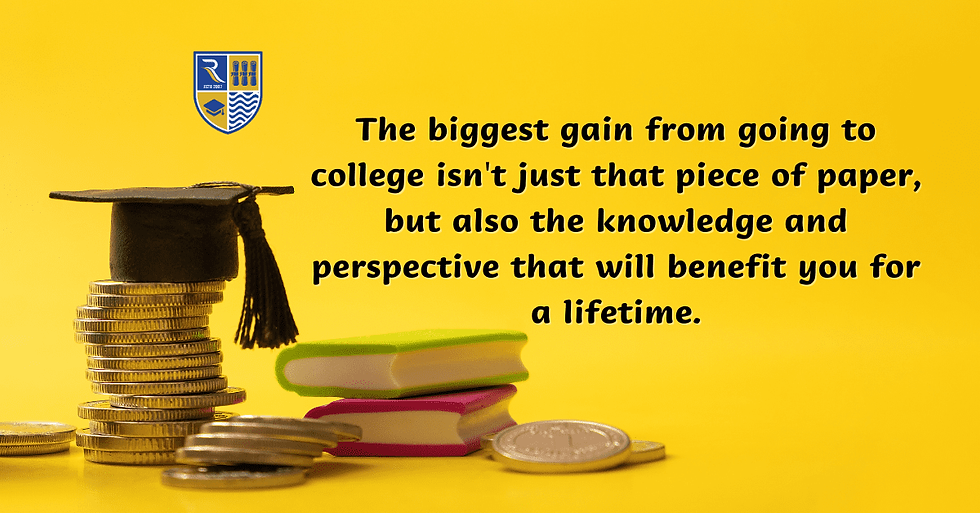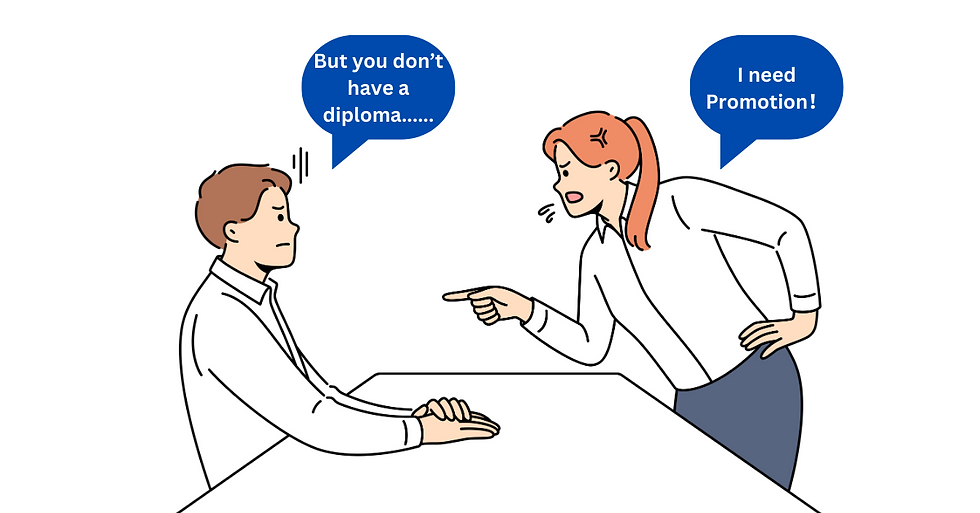Edited by Rivermore Academy
Going to college or university doesn't have a direct relationship with a bright future. However, without going to college, you might not even have the opportunity to see a brighter future.

Lately, a post on Facebook ignited a heated discussion on the "uselessness of education" and "college degrees." This post, shared by an information website, argues that investing in a college education doesn't always equate to wealth and success. In many cases, it seems to lead to student debt and working for individuals who might not even possess the basic knowledge.
As expected, this perspective is highly subjective, but it's garnered quite the attention on social media, racking up likes, comments, and shares by the dozen.
However, if you scroll through the comments section, you'll discover a melting pot of opinions. Some people assert that "networking is the key" and "having a unique skill or craft is more valuable than traditional education."
So, the big question remains: Is going to college really a futile endeavour?
Let's delve into a few illustrative stories:
Take, for example, the tale of Miss A, a young woman who firmly believed that "education is a waste of time." She opted to enter the workforce immediately after high school. Initially, things seemed promising for Miss A as she found her work relatively straightforward. To her delight, she soon noticed that college graduates were earning less than she was. It felt like a victory.

However, the tables turned, and college graduates, in a span of just a year, not only caught up but started surpassing her in terms of salary and job positions. Frustrated, Miss A approached her supervisor, demanding a raise and promotion. Her supervisor hesitated and gently broke the news, "I'm sorry, but you lack a degree, and I'm concerned about your ability to handle a higher position."
Then there's Mr. B, another individual who didn't tread the college path. He spent several years in the same company without a promotion or salary bump. Frustrated, he decided to set up his own business. While he succeeded in his entrepreneurial venture, he also admitted that he became the kind of person he once resented.
Interestingly, Mr. B, despite his own college-less journey, found himself hesitating to promote or give raises to employees without college degrees.
Mr. B candidly remarked, "It's because I didn't go to college that I understand how non-college-educated individuals think and act. Companies can continue to operate with them, but they might stay small-scale and struggle to progress further."

In Malaysia, Deputy Minister of Education YB Puan Lim Hui Ying noted an increase in the dropout rate among Form Two students from 2019 to 2022. Even more striking, the dropout rate among female secondary school students jumped from 0.4% in 2019 to 0.71%. Furthermore, despite successfully completing the Malaysian Certificate of Education (SPM), a whopping 72% of young people opt not to pursue further education but instead dream of becoming internet celebrities.
These statistics seem to paint a picture of a growing number of young Malaysians who believe "education is a lost cause."
But is this truly accurate? If education were utterly futile, why do institutions worldwide devote themselves to provide educational opportunities for working professionals? Why do individuals already in the workforce carve out time in their schedules to attend courses? Why do bosses and top executives willingly enrol in MBA programs?

Whether young students are embarking on their college journeys or working professionals are returning to higher education, the knowledge imparted by universities is immeasurable. Experience alone may help you grasp that 2+2 equals 4, but it's knowledge that enables you to fathom why 2+2 equals 4 and then apply that understanding more broadly, such as realizing that 22 equals 4.
This principle extends to society, the business world, and the workplace. The notion of the "uselessness of education" is, in essence, a clever illusion. Education equips individuals with a wealth of wisdom handed down through generations, enabling them to make informed decisions, engage in profound contemplation, and grasp a comprehensive understanding of their endeavours.





Comentários